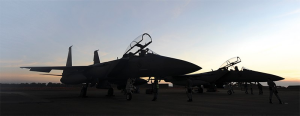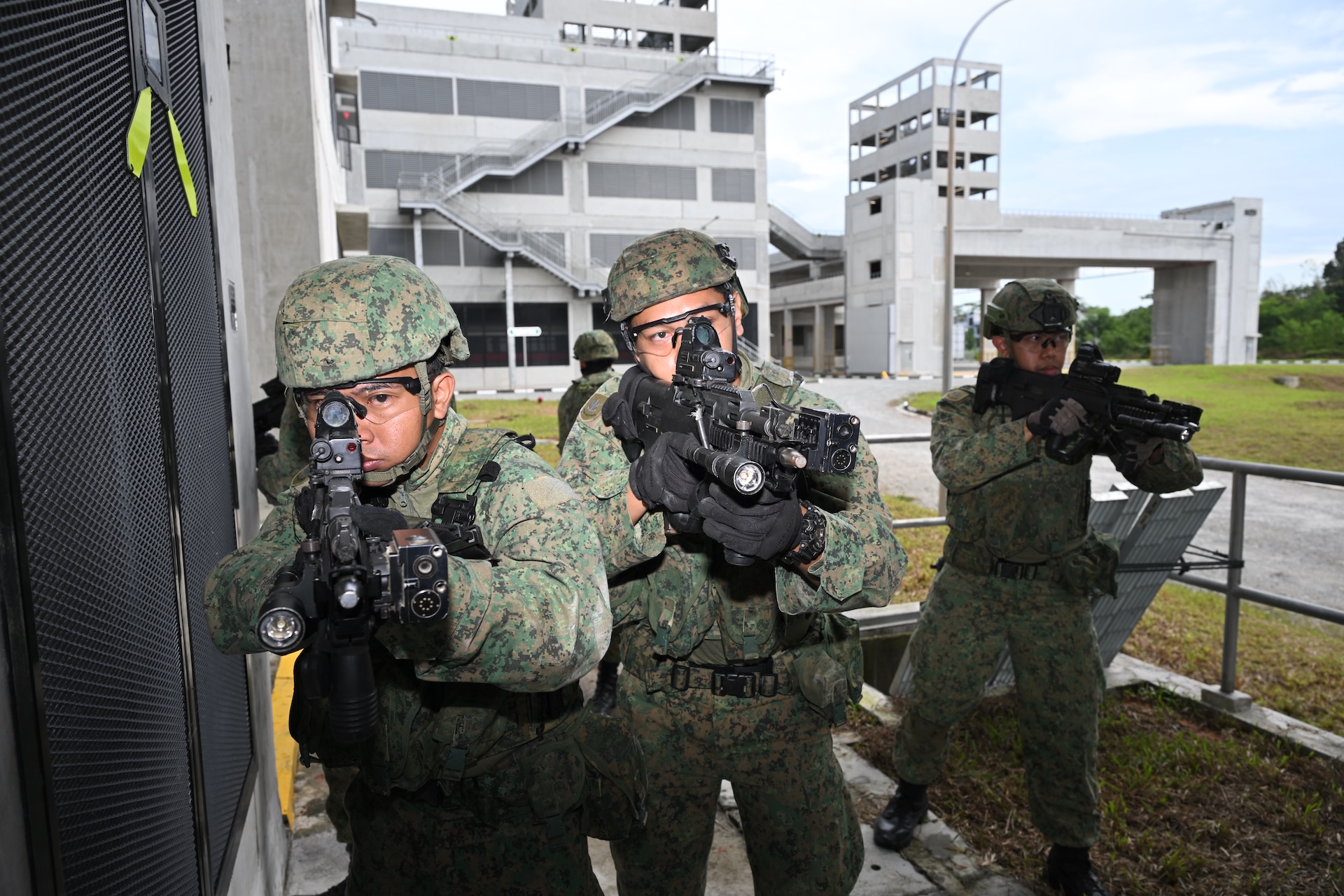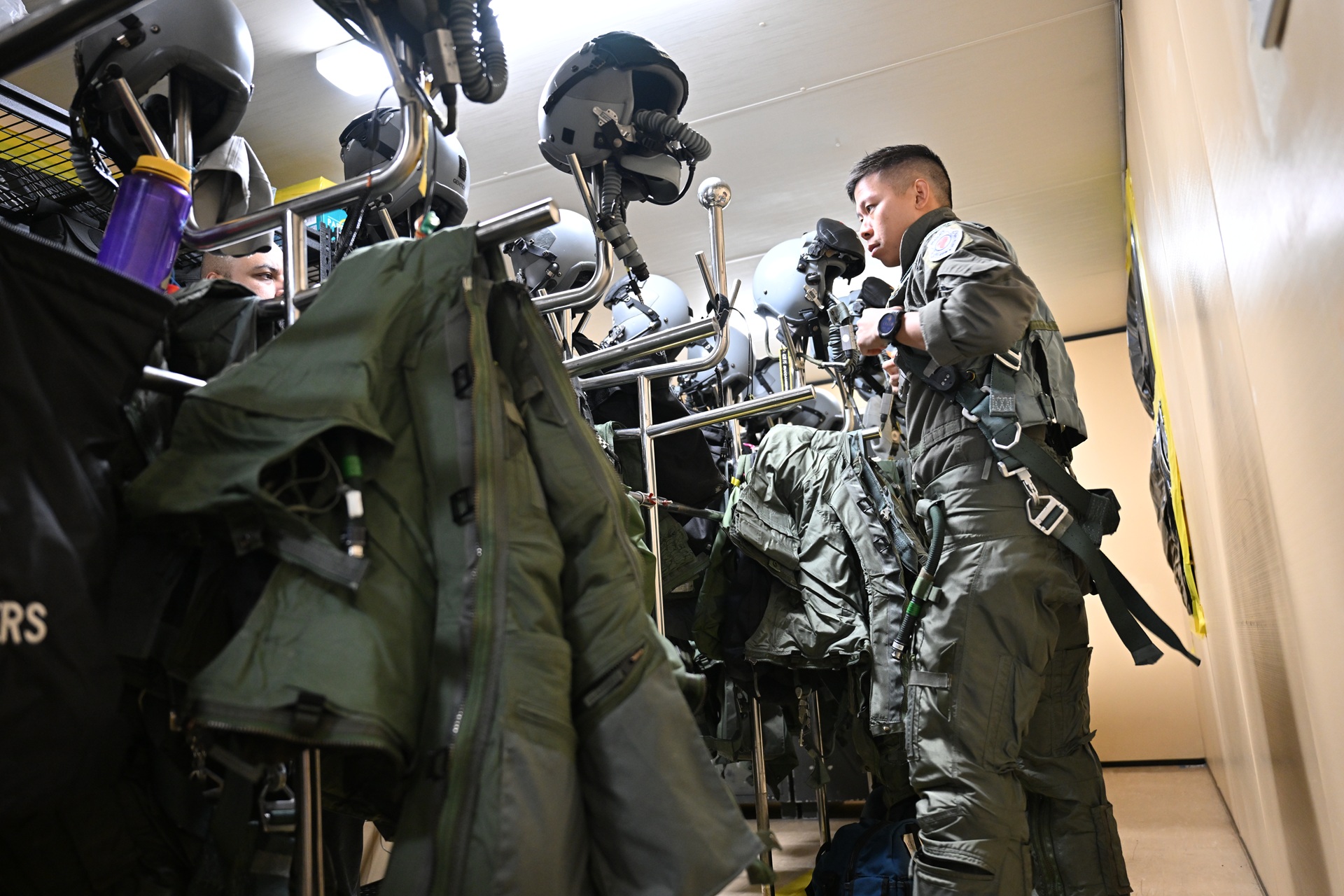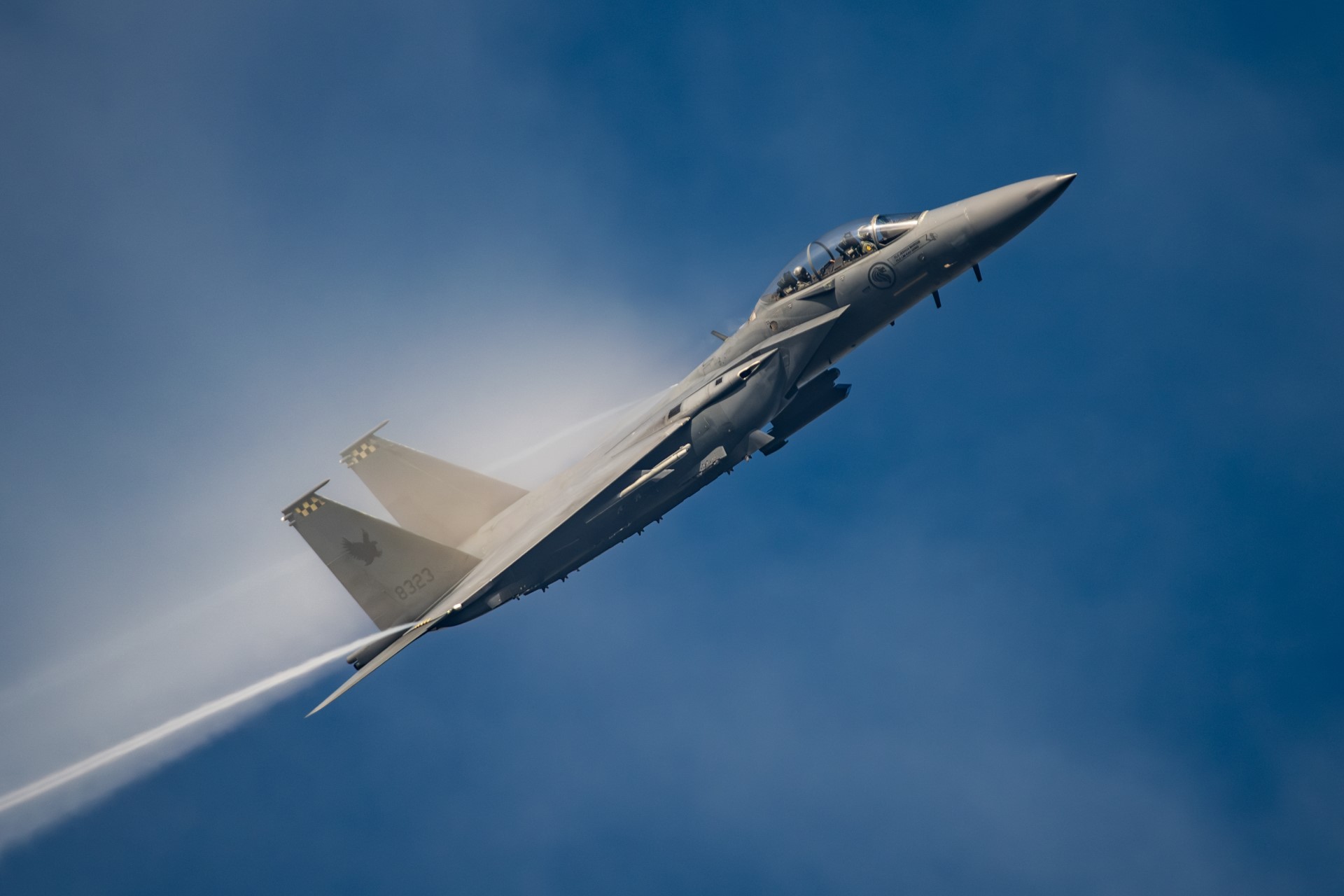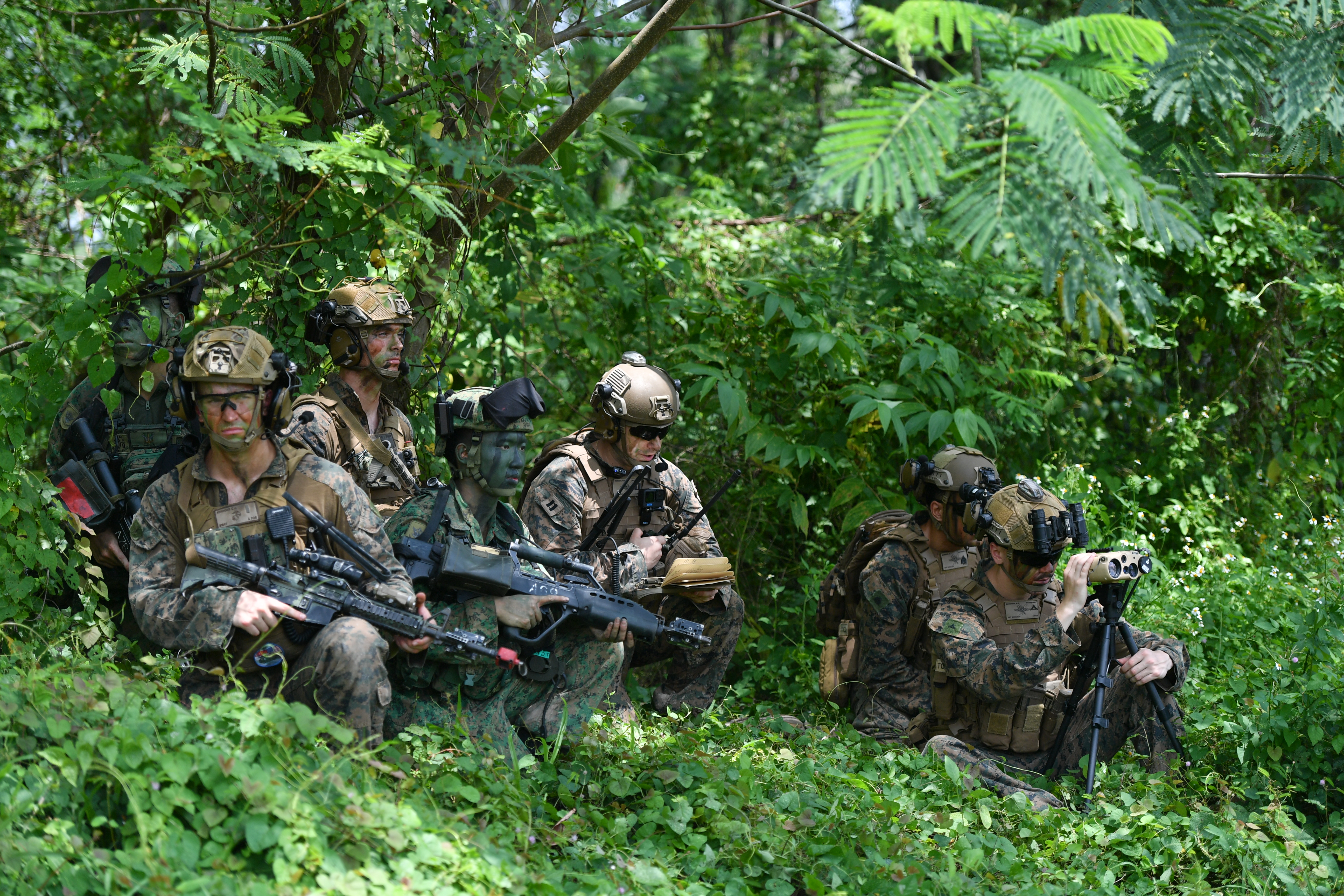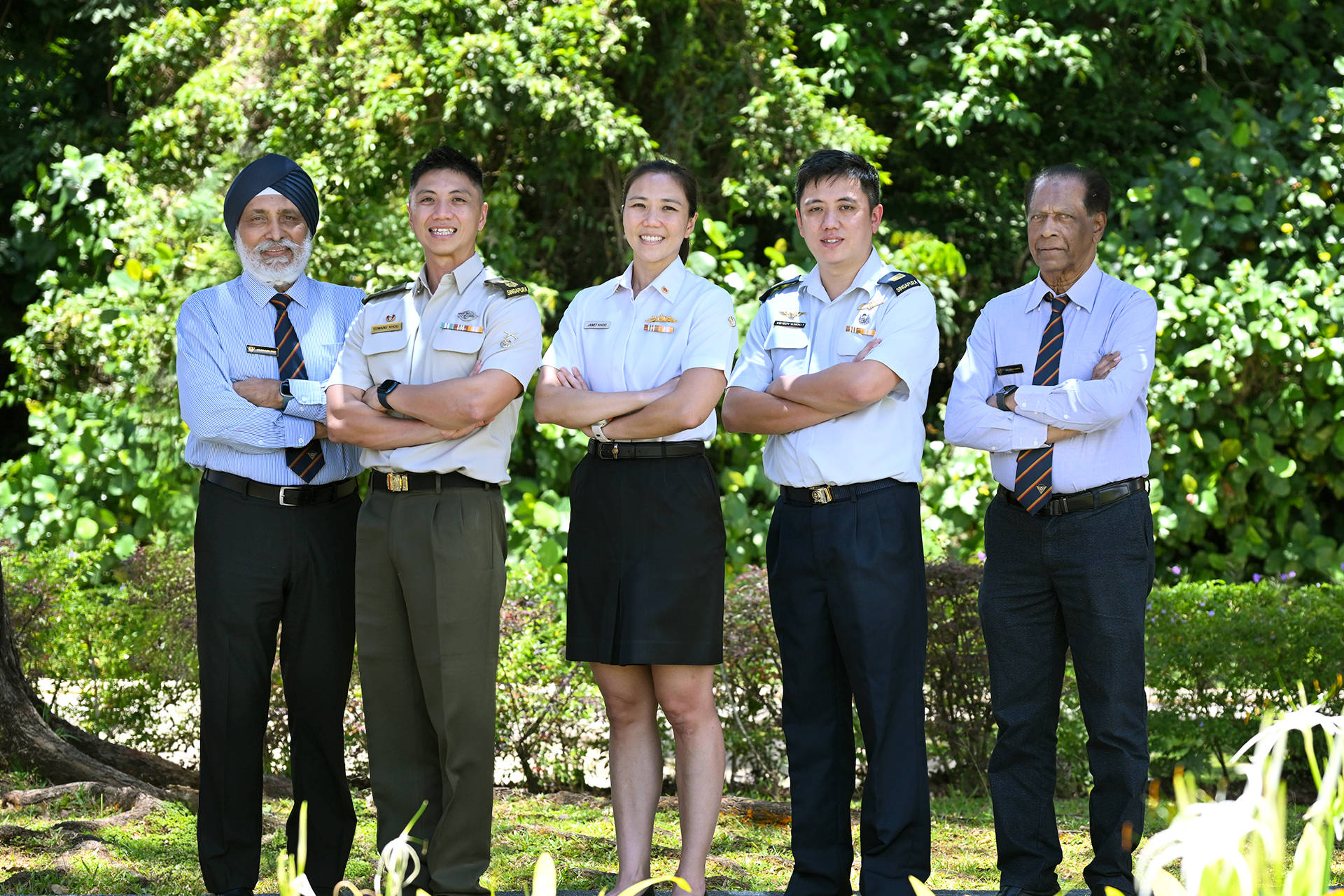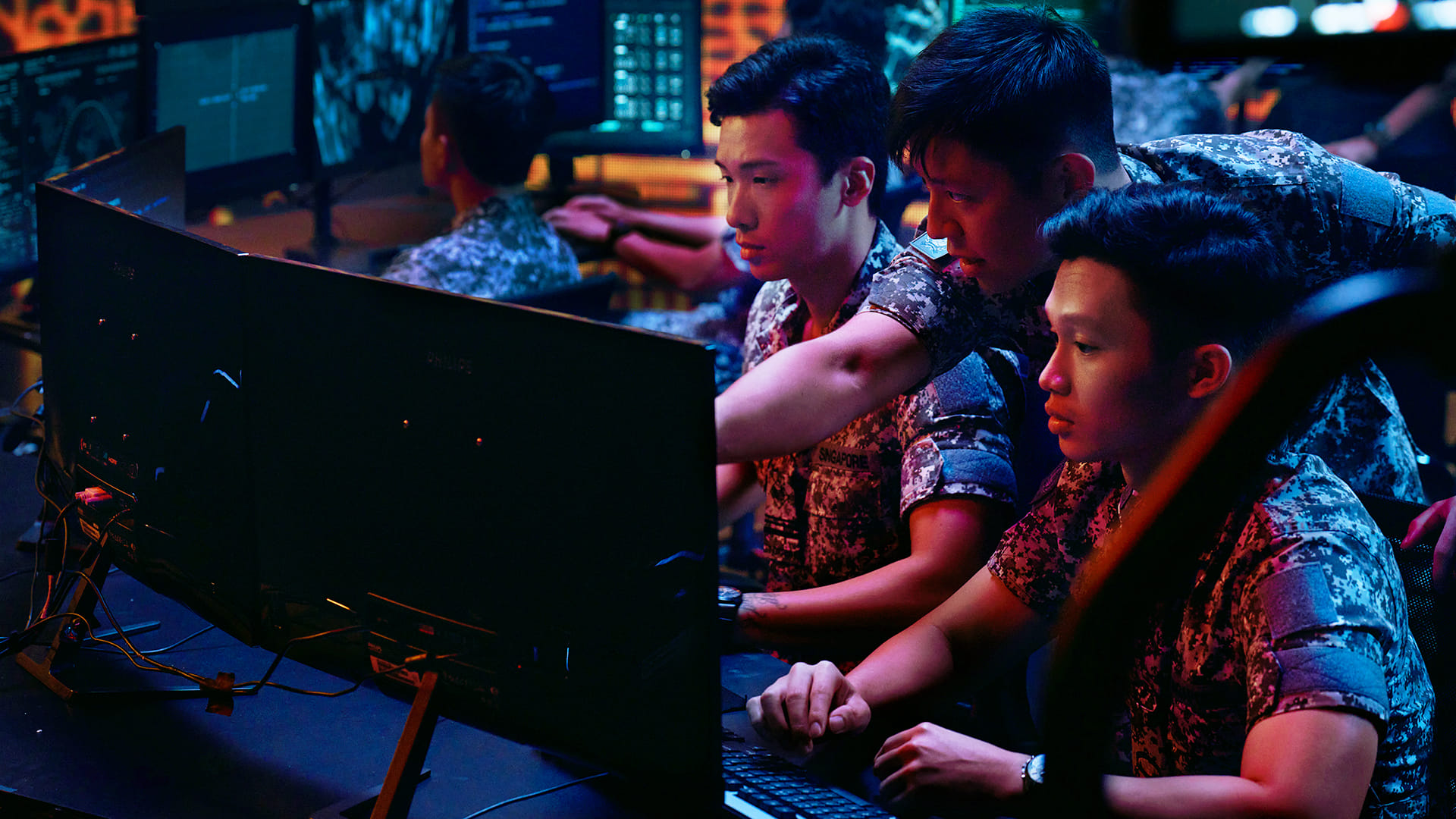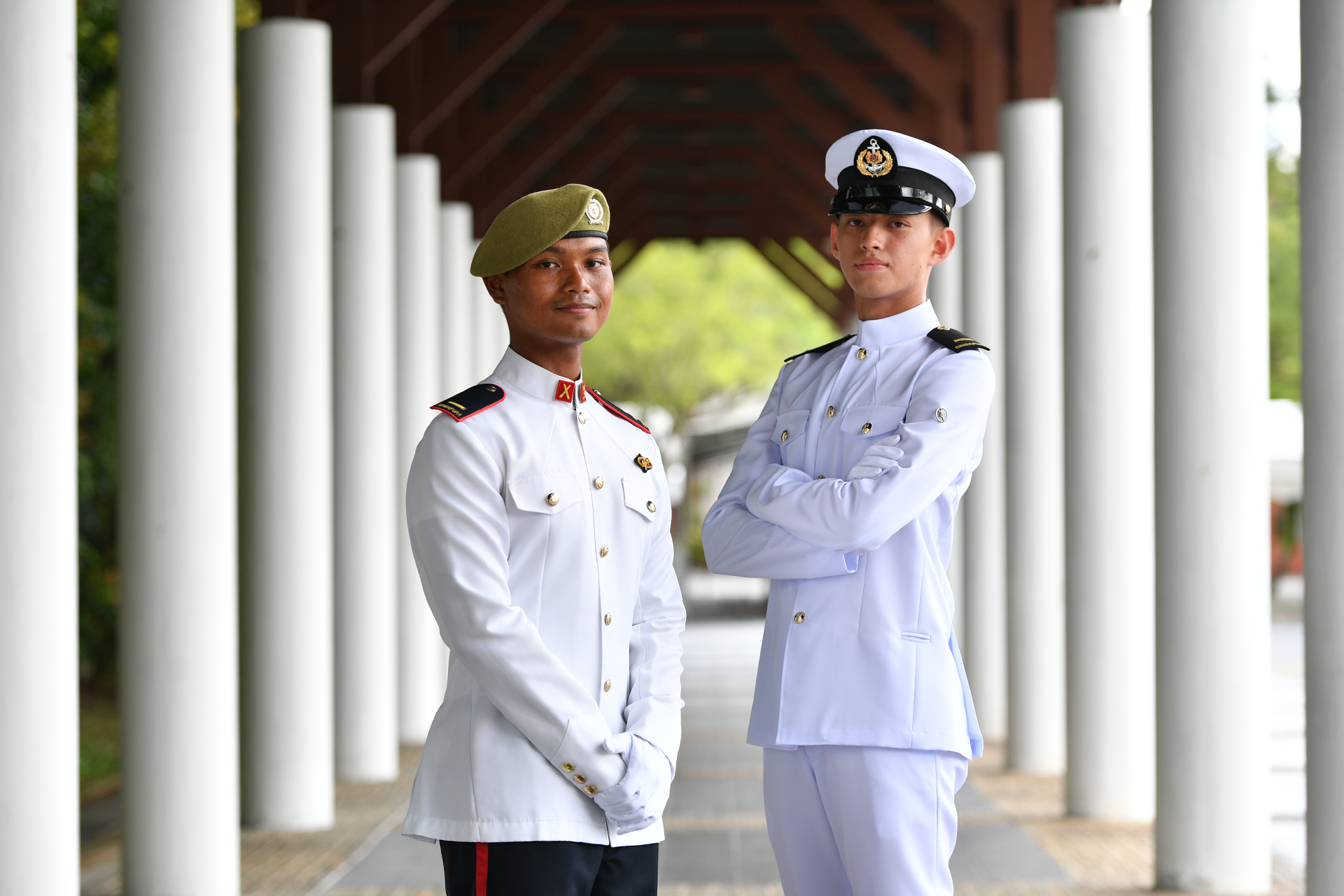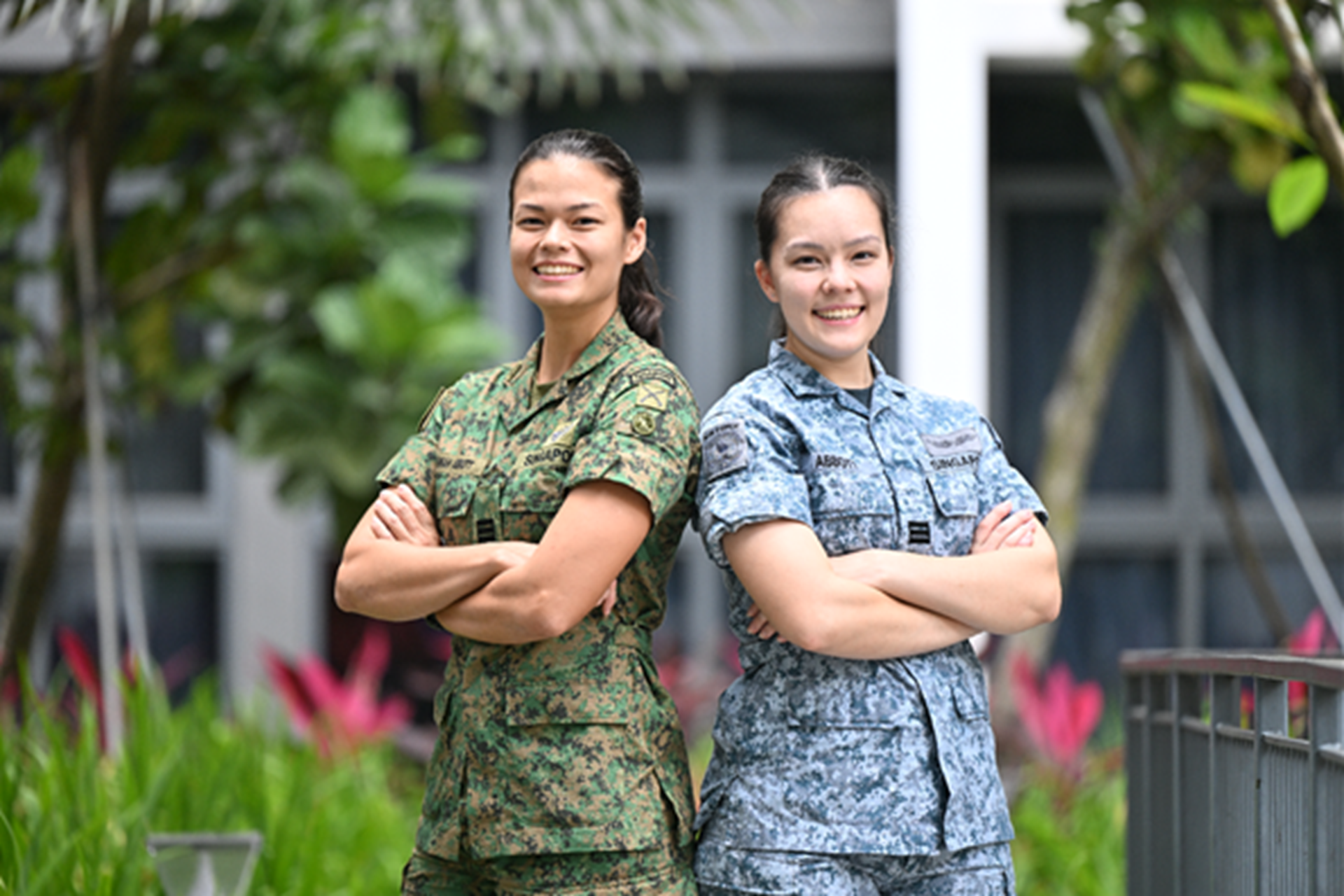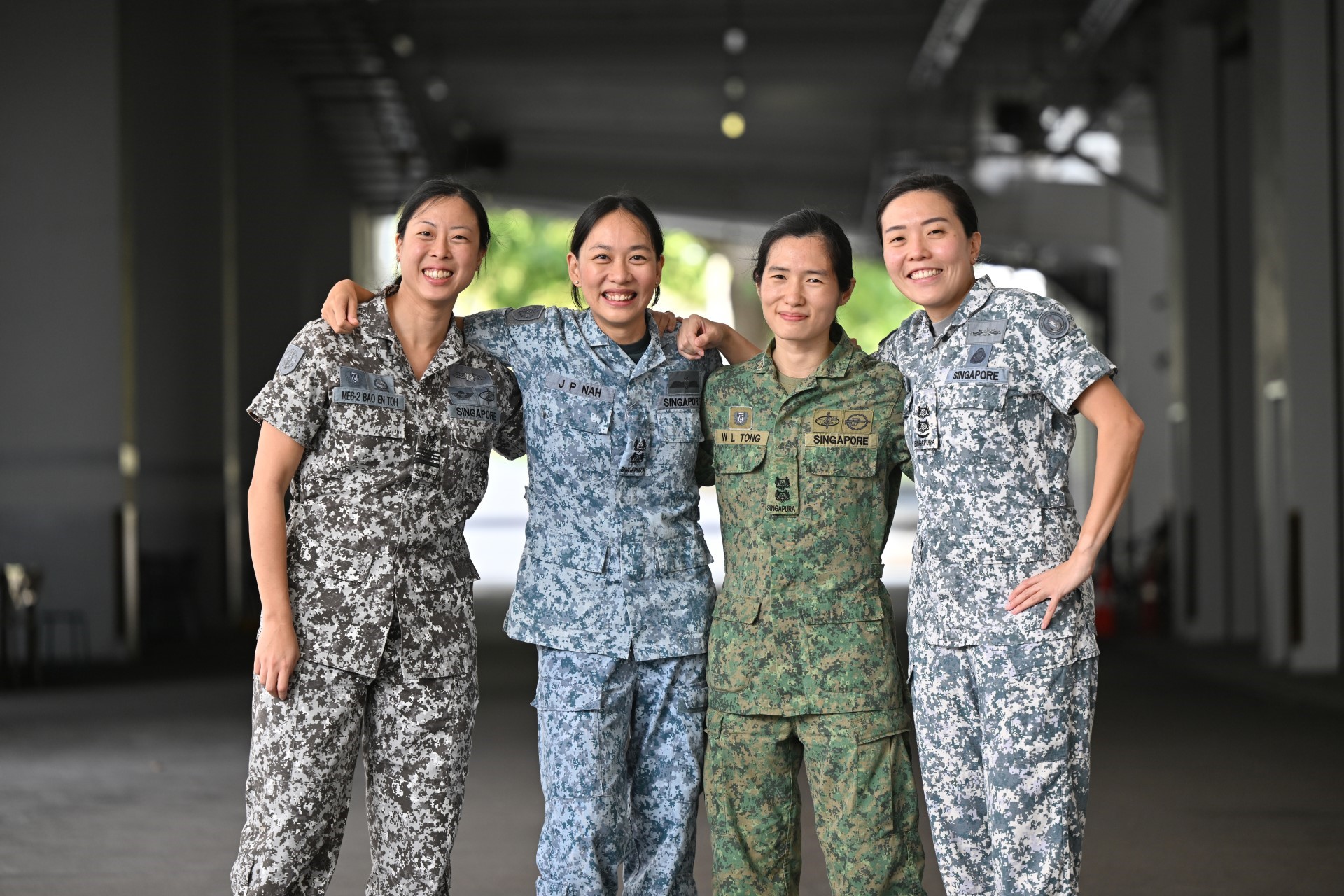WARBIRDS LIGHT UP PITCH BLACK SKIES
PHOTO // Kenneth Lin & Courtesy of RSAF
The Republic of Singapore Air Force (RSAF) hones air combat skills in Australia's largest and most complex air war game.
Over 80 war planes from two opposing camps lit up the night skies over the Northern Territories of Australia with their afterburner flames. Among them were the RSAF's F-15SGs acting as "sweepers" for Australia's F/A-18F Super Hornets that were executing a bomb strike on enemy air bases and runways.
This was not World War III, but a realistic battle scenario in Exercise Pitch Black 2014. Conducted by the Royal Australian Air Force (RAAF), the multinational war game saw a large number of aircraft being deployed in day and night operations.
About 100 aircraft and 2,300 personnel participated in the biennial exercise held from 1 to 22 Aug. The RSAF sent about 300 personnel, six F-15SG and eight F-16C/D fighter aircraft, a Gulfstream 550 Airborne Early Warning aircraft, and a KC-135R air-to-air refuelling aircraft. This year's edition saw new players France and United Arab Emirates (UAE) joining Australia, Singapore, Thailand, the United States and New Zealand.
Valuable experience
Operating alongside many different aircraft was a challenging but valuable learning experience for the men in the cockpit. They not only had to watch out for threats and make split-second decisions, but also avoid flying into each other, especially at night.
"We are fighting against so many more aircraft than I am used to in the Singapore and South China Sea training air space," said Lieutenant Lee Si Wei, an F-15SG Weapon Systems Officer (Fighter) from 149 Squadron (SQN). "It took a while for me to get used to it, and build up my situational awareness in the air."
For his pilot Captain (CPT) Adrian Tan, communication was a key concern because there were differences in the way each air force operated. They had to get used to one another's accent, and use the same terminologies. But as the exercise progressed, the aviators were able to better understand each other.
"It's critical that you share the 'same language' because in the air you don t have time to think and decipher what the other guy is saying," said CPT Tan. "We need to match each other's capabilities...and come up with the best game plan to achieve our objectives."
Vast battlespace
The war game took place over an air space about 20 times the size of Singapore. Coupled with the range facilities and clear skies of Darwin, it formed a realistic training environment.
During the exercise, the RSAF's F-16C/D fighters successfully conducted their first live drop of the GBU-49 Enhanced Paveway (EP) II, a dual-mode guided bomb featuring a Global Positioning System-aided Inertial Navigation System as well as a laser guidance system.
"Having that opportunity to do such stand-off weapon employment is critical... (it) gives the air crew and the ground crew the confidence in terms of platform capability," said Senior Lieutenant Colonel Linus Tan, RSAF Exercise Director.
Stand-off weapons like the EPII can be launched from a sufficient distance that allows the attacker to evade defensive fire from the target area.
The ground crew also gained valuable experience operating in a foreign flight line. The environment was harsh, with scorching heat, strong winds and sand dust.
To sustain the high-tempo operations through day and night, ground crew like 3rd Sergeant (3SG) Chia Yong Biao had to complete the aircraft checks quickly but without compromising on safety.
"The most challenging part of it is having to meet the tight timeline given to conduct turnaround operations (time needed for loading, unloading, and servicing an aircraft)," said 3SG Chia. The Full-time National Serviceman is a Dedicated Crew Chief in 143 SQN which operates the F-16C/Ds.
Sharing his thoughts on the exercise, Group Captain Michael Gray, the overall Exercise Director from RAAF, said: "It's really pleasing how well we all fit together."
He also noted that the RSAF had been a proven player in the exercise series since 1990, and "performed very well in all areas".
"They have significant capabilities in their aircraft and in their aircrew from their training. So (we are) always pleased to work with them."
